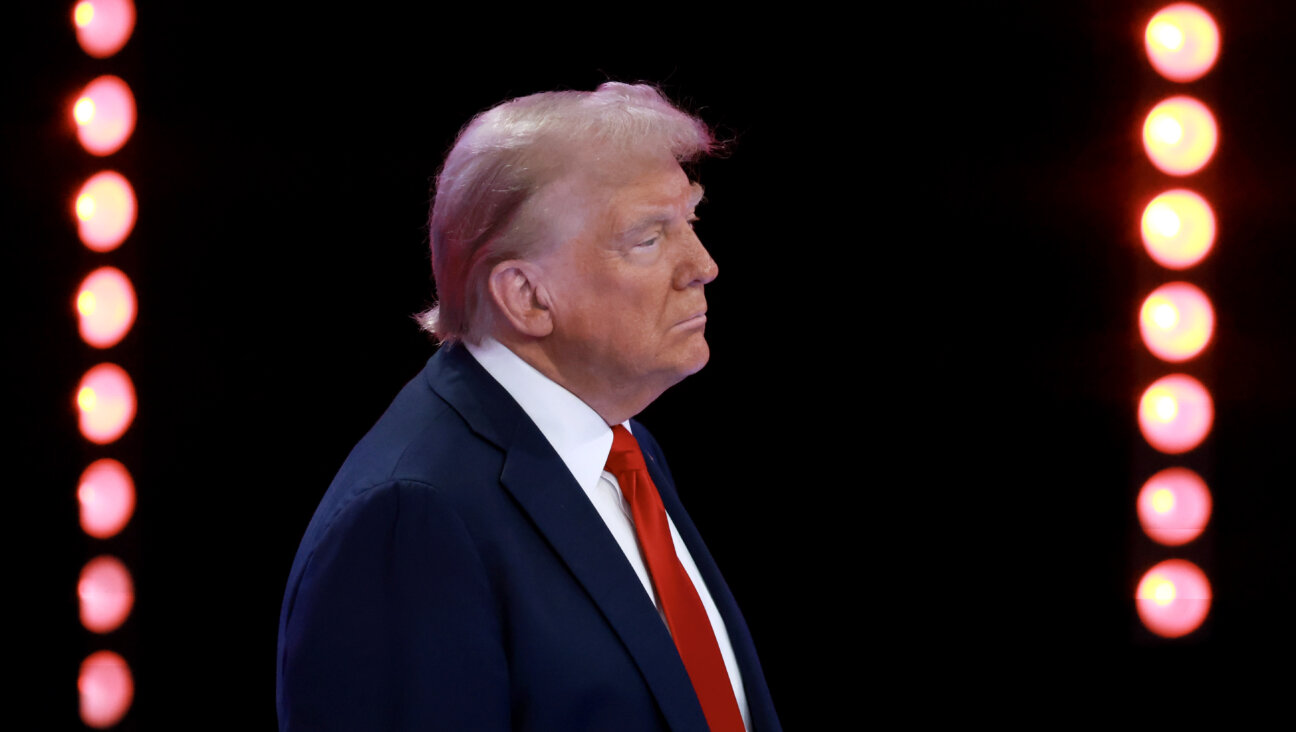What Do Interfaith Families Want From Rabbis?

Image by Getty Image
In the most recent round of wrestling over interfaith marriage, we have heard from rabbis, academics and community leaders. As someone in the middle generation of a three-generation interfaith family, one founded in 1960 when my Jewish father married my Protestant mother, I thought it might be useful to weigh in. In doing so, I draw not only on my own experience, but also on the experiences of over 300 interfaith family members across the country who were surveyed for my book Being Both: Embracing Two Religions in One Interfaith Family.
As a Reform Jew, and a “patrilineal Jew” to boot, it could be (and has been) argued that I do not have standing to comment on what seems to be a watershed moment in the Conservative (and possibly even Orthodox) movement. But from my perspective, we still need to make progress on engaging with interfaith families in all the movements, as well as post-denominational Judaism(s).
My interest lies in trying to explain what we, the interfaith families, want from Judaism. Of course I cannot speak for all interfaith families. Some have turned away from Judaism altogether, for any number of reasons — including longtime systemic exclusion. Others want to be quietly incorporated into Jewish communities without being called out as different in any way. They may be happy to put aside the other religion in the family, with the intention of creating “exclusively Jewish” homes.
But according to the 2013 Pew study, only 20 percent of Jewish parents in interfaith partnerships are raising children “Jewish only” by religion, whereas 25 percent are raising children “partly Jewish by religion and partly something else.” These are my people. We are not “doing nothing,” we are “doing both.” But we cannot do it alone.
So here is how you, the rabbis and academics and community leaders, can support us and help us stay connected to Judaism, if you so choose:
We ask rabbis to help us to celebrate our weddings, welcome our babies, usher our children into adulthood and officiate at our funerals. We want to engage with the history and culture and liturgies of Judaism, and forge bonds of affection for Judaism in our children.
Watching the loving relationship of my children (who only had one Jewish grandparent) with Rabbi Harold White, may his memory be a blessing, was one of the greatest gifts of being part of a community of interfaith families led by a rabbi and a minister. (Rabbi White left the Conservative movement over the interfaith marriage issue decades ago. He should be remembered in the current struggle as the pioneer that he was.)
We ask rabbis to co-officiate at these life-cycle ceremonies. Our partners and spouses want to feel represented as equals in these key transitional moments. We are not afraid to have our extended families, including our children, see that we honor Unitarian Universalism, or Buddhism, or Catholicism. If we cannot have co-officiating clergy, many of us will choose secular celebrants.
We ask religious institutions and clergy not to force us to make promises about how we will raise theoretical future children. We have no way of knowing whether we will feel exactly the same way about religion five or ten years down the road. We may well shift in our thinking about single-faith religious education, or interfaith education, or no religious education. Often, these decisions have as much to do with what kind of welcoming communities are available geographically as they do with theology. What we know is that religious beliefs and practices are intensely personal, and many of us do not maintain the same religious affiliations throughout a lifetime.
We ask Jewish institutions to educate our interfaith children, whether or not we are raising them in monofaith households. (In truth, we believe that all people can benefit from interfaith education in order to become better bridge-builders.) Reform Judaism, for example, needs to overturn the policy excluding these children from Jewish education, as Edmund Case has bravely stated in a recent column.
Every interfaith child, no matter how they are labeled by parents, knows that they have extended family members from more than one religion. We do not do any great service to children in denying them basic religious literacy, or segregating them and keeping them ignorant about the religions in their family trees. Because, as the poet Kahlil Gibran wrote, all children grow up to make their own choices in life: “You may give them your love but not your thoughts, for they have their own thoughts.”
Susan Katz Miller is a former Newsweek reporter, and an author, speaker and consultant on interfaith family issues. She’s on Twitter @susankatzmiller.
























